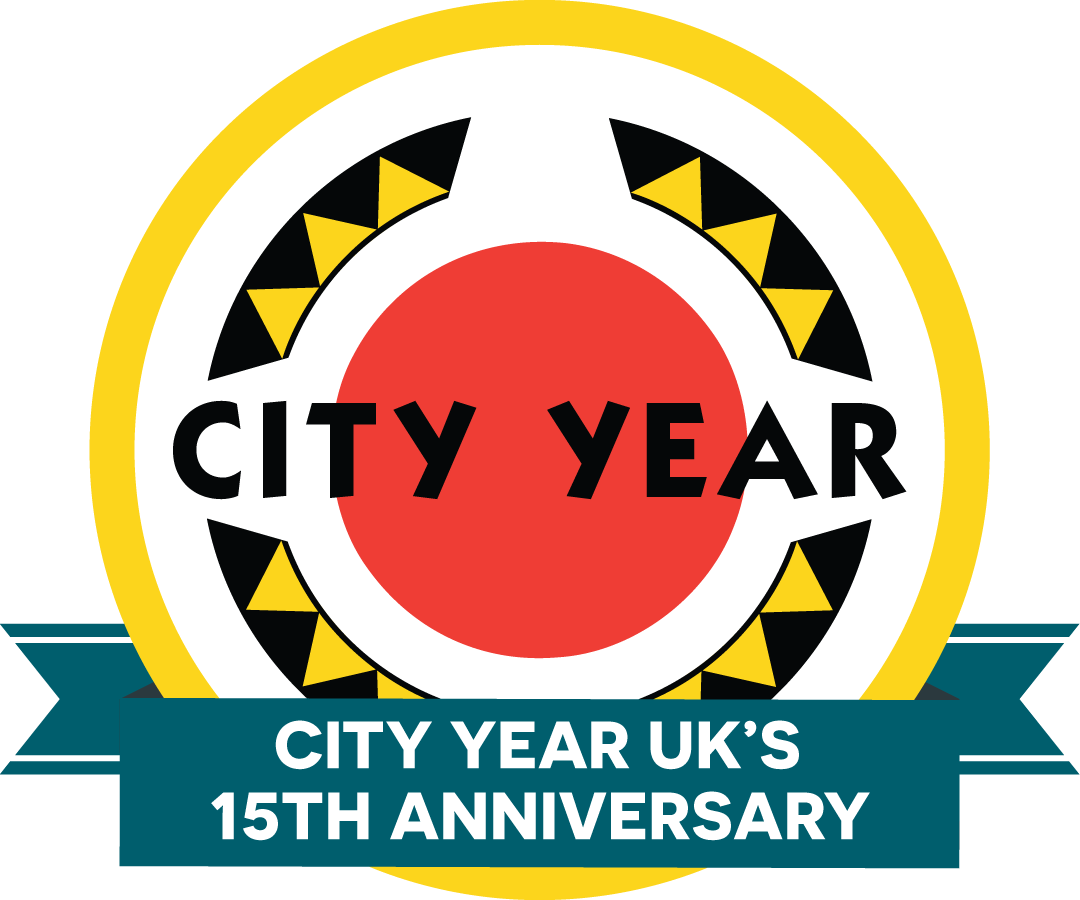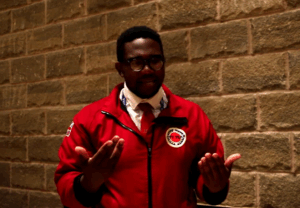Standing Firm in Power and Pride – reflections from Thembeka Zwane
Thembeka’s journey with City Year UK has come full circle – from having a City Year mentor in secondary school, to wearing the red jacket himself in 2020–21, and now leading a team of mentors as an Impact Officer at our partner school, Arena Academy in Birmingham.
In celebration of this year’s Black History Month theme, Standing Firm in Power and Pride, Thembeka reflects on his personal experiences and explores the culture and identity of Black communities in today’s society.
“Spirit, Discipline, Purpose and Pride. These are the four words that I have stood by since I had my own City Year mentor in secondary school. When I was in year 10, I was such a fan of poetry that I wouldn’t be surprised that I had dreams of becoming an air conditioner at that age. Yet I didn’t have anyone to share this passion with.”
“Being one of the only two black students in school, I felt like it was uncommon to speak about my feelings and emotions on social issues such as Black Lives Matter during such a melting pot of racism and a challenging social climate.”
“Yet, it’s always insightful and intriguing to have an environment, where blackness is subjective when there is little exposure to people from that background. As someone who never grew up in an environment where there was a heavy presence of Black people, I always felt the pressure to assimilate into the South Asian culture and society that surrounded me. Of course, this did come with many spectacular and special benefits.”
“From my upbringing, I quickly learnt and understood the importance of taking care of family in a diverse society. Coming from a family of first generation immigrants from South Africa and Eswatini, who didn’t have an understanding of Western cultural norms or habits, I recognised how at times the children may understand cultural capital and the society they live in better than their parents. I can still recall at one point when I was in year 5 at parents evening how my teacher, Mrs Evans, would wax lyrical about how I knew more about certain topics more than some of the educators at the school. Naturally, I questioned whether this was true, but my 10 year old thirst and taste for knowledge superseded the need for me to familiarise myself with my culture and language.”
“It only became apparent when I was in secondary school how important culture and race is when it is ingrained within us from an early age and stage. Within my peer group in school, I adopted knowledge about the customs and traditions within south asian culture that became more prominent and prevalent as I gained maturity, such as calling an older person “Uncle and Auntie” and even referring to them in words from the Urdu language such as “Lala” when you may not know their name. My personal favourite address term however was referring to strangers and acquaintances as “brother” as if they were an unknown relative in my Zwane family tree. My experiences of learning about my culture didn’t however stop there.”
“I slowly became immersed in a world of Hip Hop Music that taught me more about my culture than I could ever learn within my peer group in school. Listening to socially conscious hip hop acts like A Tribe Called Quest and Nas taught me more about what it is like to be Black and how culturally relevant being your authentic self in a disingenuous world could be. Considering how culture plays a crucial, pivotal role in our everyday lives, it started becoming an important and integral facet of my life in other areas such as food and language. With Food, I had always been well acquainted with the idea of it being part of my cultural identity, yet I never felt proud to talk about it until the point that I reached college and sixth form.”
“My time at college was single handedly two of the best years of my life, where I enjoyed having a diverse social network of friends all from different cultural backgrounds. This was also the first time I came across another person from my country that shared the same experiences and tastes of food. My friend was always talking about how he missed our country, but we always kept in mind how these experiences made us who we are today. Certain foods such as “Pap and Boerewors”, more commonly known as maize meal and sausage and English was a delicacy that we both fondly conversed about. When it came to language, we also had the unique experience of how, even though we were both born in the same country, we only had a proficient control of the English language, owing to the fact that I came to the UK when I was two and my friend when he was 15.”
“Going back to South Africa and not knowing my mother tongue was always an anomaly and abnormal, but my cousin from my mother’s side was the first person who provided helpful reassurance that with my upbringing being done in a Western country, it is completely understandable and not unprecedented. As a black person, I learnt very quickly that you can be treated like a foreigner even if you are a native from that country if you don’t know the mother tongue! Fast forwarding to my 20s, I became more aware of the cultural dress and attire in my country that I began embodying the bright and colourful nature of the motherland, by wearing brighter and more visible clothing to work in tribute to my southern african heritage. Whilst working at schools, people would oftentimes compliment me on my bright choice of clothing knowing full well that it represented a unique identity! Whether as an English teacher, a pastoral tutor or as an impact officer for CIty Year UK, my reputation precedes me.”
“These few experiences that I have discussed hopefully highlight the importance of cultural identity as Black people in today’s society and especially in Black History Month!”
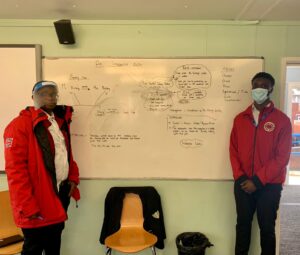
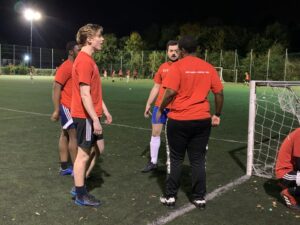
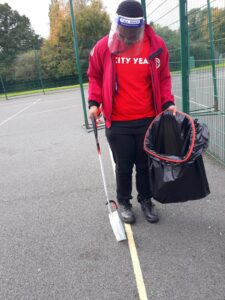
Related stories
Christine Ellis, a former City Year mentor and staff member, reflects on the leadership journey that began during her service...
Read more about 10 Leadership Lessons from 10 Years2 of our Team Inspiration Mentors serving at Q3 Academy Langley have written individual testimonials about the positive change they’ve...
Read more about Team Inspirations’ testimonialsAhead of International Women’s Day, City Year UK alumni and GirlDreamer co-founder Amna writes about the formative experience of seeing...
Read more about Amna’s story: women in leadershipAs part of City Year UK’s Volunteer Appreciation Month, our West Midlands-based mentor Aysha writes about all the elements...
Read more about Volunteer Appreciation Month: Aysha’s reflections